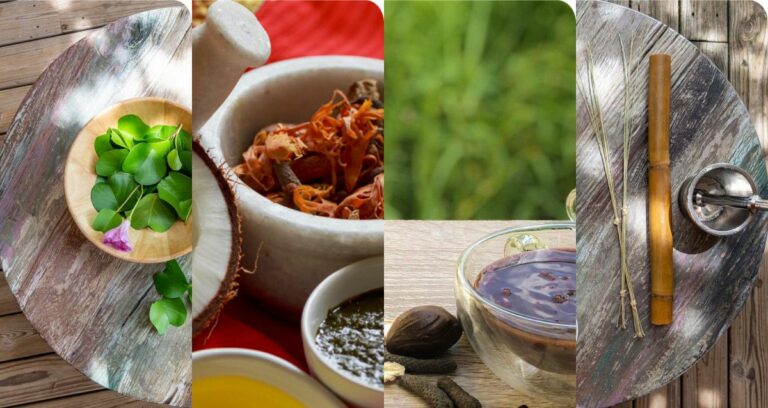Introduction: Maldives’ Traditional Medicine and Herbal Remedies
Maldives has a rich history of traditional medicine and herbal remedies that have been used for centuries to treat various ailments, ranging from the common cold to more severe illnesses. The Maldivian traditional medicine system has its roots in Ayurveda, which originated in India and was later adopted by the Maldivian people. Traditional medicine in Maldives is influenced by the country’s geographical location and environment, which is surrounded by the sea and abundant in tropical vegetation.
Traditional medicine in Maldives includes herbal remedies, massage therapy, and spiritual healing. Maldivian traditional medicine practitioners, known as “hakim,” use a combination of herbs, spices, and other natural ingredients to prepare medicines that are believed to have healing properties. These medicines are usually administered orally or applied topically. While modern Western medicine is widely available in Maldives today, traditional medicine continues to be an important part of the country’s healthcare system and cultural heritage.
The Maldivian Diet: Ingredients and Cooking Methods
The Maldivian diet is largely based on seafood, coconut, and rice, which are cooked using a variety of methods, including boiling, grilling, and frying. Maldivian cuisine is known for its distinctive taste, which is achieved through the use of a wide range of herbs and spices. Some of the most commonly used herbs and spices in Maldivian cuisine include cumin, cinnamon, cardamom, fenugreek, and coriander.
In addition to seafood, coconut, and rice, Maldivian cuisine also includes a variety of vegetables and fruits, such as pumpkin, eggplant, mango, and papaya. These ingredients are often used to prepare curries, which are a staple of Maldivian cuisine. The use of fresh ingredients is emphasized in Maldivian cooking, and many traditional dishes are made using locally sourced produce.
The Use of Herbs and Spices in Maldivian Cuisine
Herbs and spices are an essential part of Maldivian cuisine and are used to enhance the flavor and aroma of dishes. Some of the most commonly used herbs and spices in Maldivian cuisine include ginger, garlic, curry leaves, and pandan leaves. These ingredients are often used in marinades, curries, and other dishes to add depth and complexity to the flavor profile.
In addition to being used for their culinary properties, many herbs and spices used in Maldivian cuisine also have medicinal properties. For example, ginger is believed to aid digestion and reduce inflammation, while garlic is believed to have antibacterial properties. Pandan leaves are used in traditional medicine to treat headaches and other ailments. The use of herbs and spices in Maldivian cuisine is thus not only a matter of taste but also serves a medicinal purpose.
Traditional Maldivian Beverages: Health Benefits and Medicinal Properties
Traditional Maldivian beverages are an important part of the country’s culinary heritage and are often consumed for their health benefits and medicinal properties. One such beverage is “kattaru,” which is made from the sap of the coconut palm. Kattaru is believed to be rich in vitamins and minerals and is commonly consumed to treat dehydration and other ailments.
Another popular Maldivian beverage is “black tea,” which is prepared by boiling tea leaves with water and adding sugar and milk. Black tea is believed to have a range of health benefits, including boosting the immune system and improving digestion. Other traditional Maldivian beverages include “kurumba” (coconut water) and “fai dheo” (a drink made from a mixture of coconut water and toddy).
Maldivian Cuisine and Health: Science and Evidence-based Findings
While traditional medicine and herbal remedies have been used in Maldives for centuries, there is a growing interest in the scientific study of these practices. Researchers are investigating the medicinal properties of various herbs and spices used in Maldivian cuisine and the health benefits of traditional Maldivian beverages.
For example, studies have shown that ginger may have anti-inflammatory and pain-relieving properties, while garlic may help lower blood pressure and cholesterol levels. Research has also shown that coconut water may be effective in treating dehydration and restoring electrolyte balance in the body. These findings suggest that traditional Maldivian practices have the potential to contribute to modern healthcare practices.
Conclusion: Embracing Maldives’ Traditional Knowledge in Modern Culinary Practices
In conclusion, Maldives’ traditional medicine and herbal remedies have had a significant influence on the country’s cuisine. The use of herbs and spices in Maldivian cooking not only contributes to the flavor and aroma of dishes but also serves a medicinal purpose. Traditional Maldivian beverages are also consumed for their health benefits and medicinal properties.
As the interest in traditional medicine and herbal remedies grows, there is a need to embrace Maldives’ traditional knowledge in modern culinary practices. By incorporating traditional Maldivian ingredients and cooking methods into modern cuisine, we can not only preserve the country’s cultural heritage but also promote health and well-being.

